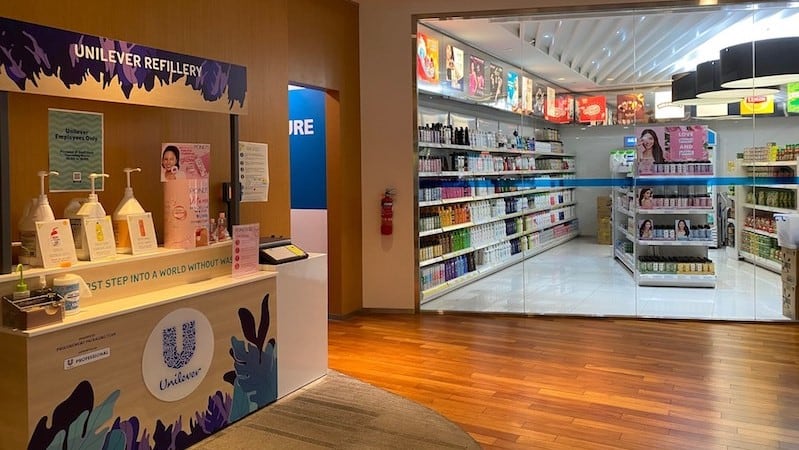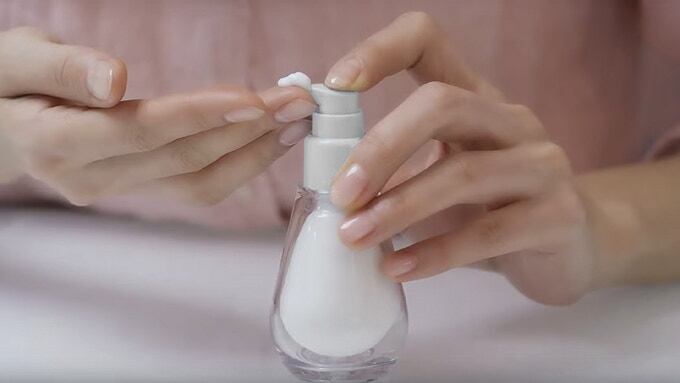The conglomerate recently piloted a beauty refillery scheme at its Singapore office, which encourages employees to bring their own bottles to purchase product refills from the staff shop, thereby reducing the use of single-use plastic packaging for their daily needs.
Head of procurement packaging at Unilever, Marika Lindstrom, told CosmeticsDesign-Asia that Unilever Singapore was driven by its goal to be a plastic-free office as part of the company’s global movement to halve its use of virgin plastics by 2025.
While the firm has not announced plans to export the program to its various offices worldwide, Lindstrom said it was looking into the potential of an expansion.
“The team is looking to take the learnings and insights from this pilot in Singapore to potentially scale more of such zero waste channels in the future, including expanding to other Unilever offices.”
Ready to refill?
This is not Unilever’s first foray with a reuse and refill concept in South East Asia.
In March 2019, it piloted the All Things Hair Refillery Station in the Philippines. Similarly, it allows consumers to bring their own old bottles to a station and refill their favourite hair products at a discounted price.
The refillery station also serves as a collection point where consumers can drop off their used sachets and bottles, allowing Unilever Philippines to take care of collection and upcycling.
“Our Philippines team has been receiving an overwhelmingly positive consumer response from the pilot program so far, with sales from the refillery exceeding targets and having faster product offtake versus the traditional supermarket channel,” said Lindstrom.
The company hopes that initiatives such as the refilleries will enable consumers to pick up the habit of recycling, reusing and reducing plastics.
“An essential step to ‘closing the loop on plastics’ and keeping it out of the environment, is through educating and encouraging new behaviours around reducing, reusing and recycling,” said Lindstrom.
However, she added that companies like Unilever still have some work to do when it comes to consumer education.
“In future, we hope to see more consumers recycling, reusing and reducing plastics. The refillery model is a great example of reusing plastic, and we believe that there is still some way to go in consumer education in order to prepare the market for it.”
When asked if Asian consumers were ready for this concept to be commonplace, Lindstrom said it would depend on each market and its own unique behaviours and cultural preferences.
For instance, the firm has observed a rise in eco-consumerism in Singapore and among the younger demographics in the region.
“We have seen growing interest with the rise of eco-conscious consumers, especially among the millennial group, so we remain positive of market readiness.”
She added that today’s consumer would be more willing to forgo convenience in the name of sustainability.
“We have observed consumer demands and preferences changing dramatically over the years, with a heightened awareness of the plastic problem and an increasing sense of ownership and responsibility to make a change.”
Partners in change
Lindstrom highlighted that Unilever worked closely with partners such as Weener Plastics, SABIC and Loop in order to develop solutions to the plastic waste issue.
With SABIC, the company work to launch products with recycled packaging under REN Clean Skincare.
Most recently, it announced a partnership with Loop to expand on its refillery concept with a delivery model.
“In January 2019, we announced our participation in Loop – an innovative waste-free shopping and delivery model for reusable packaging innovations and refillable product formats. Products are shipped directly to consumers and are then returned and refilled,” explained Lindstrom.
She concluded: “We believe that plastic has its place, but that place is not in the environment. It starts with rethinking how we design our products, so we use less plastic, better plastic, or no plastic… We remain hopeful of progress in changing the consumer market with more eco-retailers, start-ups and industry players coming together to reduce the overall plastic footprint.”





